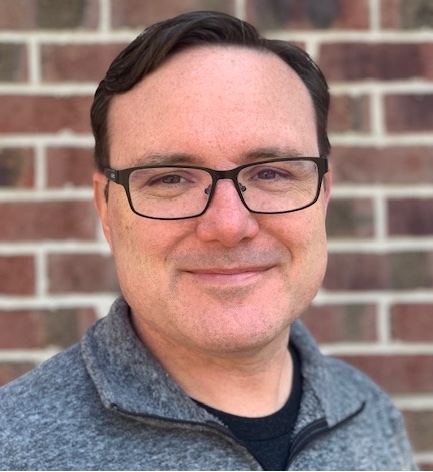The Appleton Common Council will have one new member, Patrick Hayden, after the Common Council swearing-in ceremony on Tuesday, April 18. Every alderperson, with one exception, who was eligible to run for re-election ran for re-election unopposed and won. The exception was soon-to-be former District 7 Alderperson Maiyoua Thao, whose retirement from public office opened up the seat Hayden won.
This is Hayden’s second election in under six months. Hayden was the Democratic challenger to Assemblymember Dave Murphy (R-Wis.) for his north Appleton–based seat in the 2022 election, an election which Hayden lost by 18 points. Although he lost this earlier race, he does not regret running. The 56th Assembly District is very red, and going into the election, he knew he was likely to lose. However, he appreciated the opportunity to talk to voters about gerrymandering, cannabis legalization and other issues at the state level.
“I wanted to build a grassroots foundation in the district,” Hayden said. “I was able to find people who are excited about bringing more progressive ideas to the Fox Valley.”
Hayden has lived in Appleton for about eight years, after moving here from Charlotte, N.C., where he got his degrees in political science and information technology. He worked in investment banking for eight years before working in IT at Thrivent Financial, where he currently serves as Lead Software Engineer. On April 4, he was elected to the Common Council, defeating his opponent, Karl Koenig, by about 18 points. Hayden identifies as a progressive and is looking forward to pushing for solutions to address issues such as public safety, climate change and housing affordability.
The Appleton Police Department (APD) currently has a mental health professional embedded in the department, and Hayden would like to see more of this. He feels that, by asking police officers to handle mental health crises, the city is putting an unfair burden on officers and potentially endangering the community. He hopes that, by embedding these professionals, APD officers will be able to focus on solving serious crimes, while creating safer situations for those dealing with a mental health crisis or homelessness.
As a father, Hayden is deeply concerned about the climate crisis. He recalled the hole in the ozone layer that appeared due to the use of chlorofluorocarbons when he was in elementary school, and the way that the world came together to ban these chemicals, which resulted in the hole closing. Although Appleton is a small community of around 75,000, he feels that Appleton can set a strong example for surrounding communities.
Specifically, Hayden thinks Appleton should invest in public transit planning that relies on more than just the Valley Transit bus system. One idea he’s considering is building greenways in the city, which he hopes could eventually become a light rail line with biking and walking trails. He pointed out that the U.S. has a car-centric mindset, which he’d like to combat in Appleton. He believes that projects like these could lessen car dependency, which would improve pedestrian safety, decrease carbon emissions in transportation and cut down on drunk and reckless driving. He is also open to exploring free transit.
“I think [riders] should be compensated for their time and [how] they’re helping the environment,” Hayden said. “Fare enforcement is an expensive and predatory practice.”
Appleton is becoming a place of climate refuge as climate change drives more extreme weather and sea level rise around the world. Hayden pointed out that this influx of climate refugees could drive up housing prices in the area, which makes the two issues inherently connected. He feels that the city needs to incentivize people to develop and rent out affordable housing. As someone who represents a district with a lot of constituents who own a second home, he doesn’t want to take away peoples’ revenue streams, but he acknowledges that companies like Airbnb and VRBO drive up housing prices and leave homes empty, which exacerbates the homelessness crisis. He would consider taxing companies like these, but would like to see concrete numbers before proposing anything specific.
Although the city government is restricted in its ability to act on certain issues, Hayden argued that the Common Council has the ability to enact change in non-legislative ways. For example, although the city cannot directly increase the minimum wage in Appleton to be higher than the state minimum wage of $7.25 per hour, the council can pass resolutions in support of workers’ rights. This can send a message to local businesses that may be exploiting their workers, and the city government has the ability to decide which businesses are part of the community. Hayden pointed out that he worked harder as a waiter in college than he does as a software engineer currently, even though he makes more money now.
“I’d like to think I feel their pain, but I honestly don’t know how people get by doing things like waiting tables today,” Hayden said.
Hayden extended his criticism of businesses that pay low wages to Lawrence University, which he criticized for paying student workers $10 per hour or less.
“The cost of going to college has grown enormously,” Hayden pointed out. “Paying [$7.50-$10] per hour is not acceptable. The endowment at Lawrence is more than enough to help cut into the issues with some students being able to afford to go to school here. It’s just not right to take advantage of 18–21-year-olds and call it work experience, because that work experience doesn’t translate to the real world. It’s just taking advantage of the situation.”

